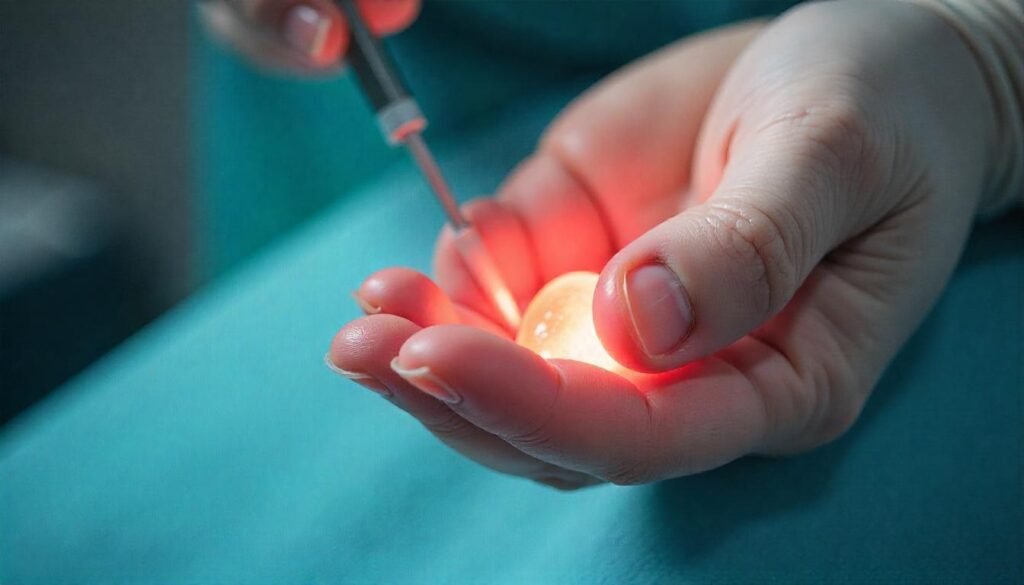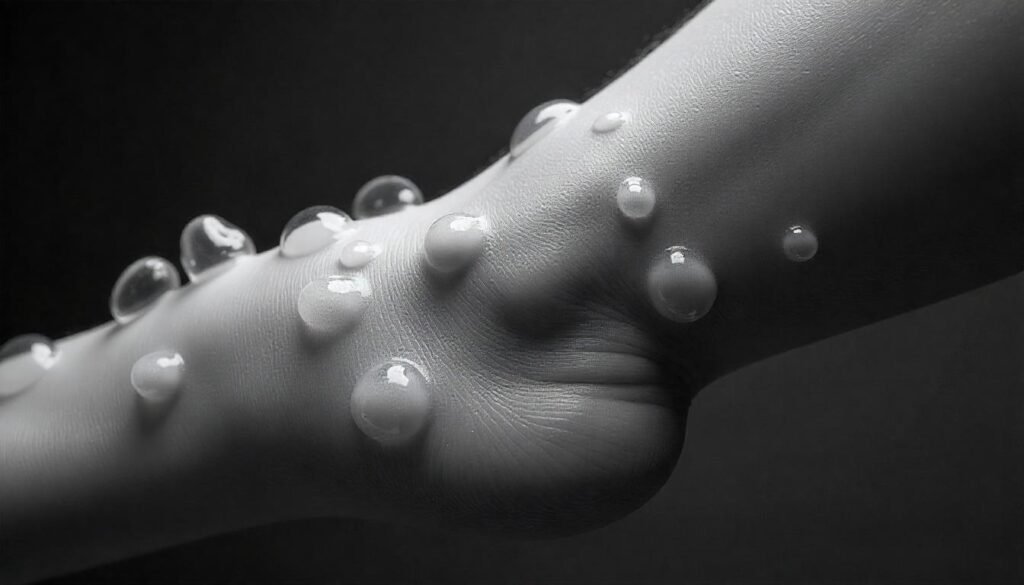Introduction to Syphilis Symptoms
Understanding syphilis symptoms are crucial for early detection and treatment, which can prevent severe health complications. Syphilis, often referred to as “the great imitator,” is a sexually transmitted infection (STI) that can manifest in various ways, often mimicking other diseases. This article aims to provide a detailed overview of syphilis symptoms, enhancing awareness and encouraging proactive health measures.

Table of Contents
What is Syphilis?
Syphilis is caused by the bacterium Treponema pallidum. It is primarily transmitted through sexual contact, but it can also be spread from mother to child during pregnancy or childbirth. The disease progresses in stages: primary, secondary, latent, and tertiary, each characterized by distinct symptoms. Recognizing these syphilis symptoms early can lead to effective treatment and a better prognosis.
Primary Stage Syphilis Symptoms
The primary stage of syphilis typically occurs about three weeks after exposure to the bacteria. It is marked by the appearance of a single sore, known as a chancre, at the site of infection.
The Chancre’s Notable Characteristics:
- Appearance: Typically, the chancre presents itself as a round and firm sore that is often completely painless to the touch, which can make it easy to miss or dismiss by those affected. The lack of discomfort may contribute to individuals not recognizing the significance of this symptom, as it doesn’t provide the usual warning syphilis symptoms associated with other types of sores or lesions.
- Location: This sore can manifest in various areas of the body, primarily dependent on where the infection has occurred. Common sites include the genitals, anus, or even the mouth. Each of these locations serves as a potential entry point for the infection, and awareness of the potential for the chancre to appear in these different areas is crucial for early detection and treatment.
- Duration: In terms of healing, the chancre typically resolves itself within a span of three to six weeks. This relatively short duration often leads those infected to unknowingly overlook the chancre as a syphilis symptoms of a more serious condition, as the lesion may disappear without any noticeable intervention. Consequently, this can result in a delay in seeking appropriate medical attention or treatment, enabling the underlying infection to progress.

Secondary Stage Syphilis Symptoms
If left untreated, syphilis progresses to the secondary stage, which can occur weeks to months after the initial infection. This stage is characterized by systemic symptoms that can affect various parts of the body.
Common Syphilis Symptoms:
- Rash: A rash may develop as a notable syphilis symptoms, often presenting itself as reddish-brown spots on various parts of the body such as the torso, arms, and legs. This rash can sometimes extend beyond these areas, becoming visible in sensitive regions like the mouth and genital area, causing discomfort and warranting attention.
- Fever: Alongside the rash, individuals may also experience a mild fever, which serves as an indication of the body’s immune response to the ongoing infection. This mild elevation in body temperature is a typical reaction, reflecting how the immune system is working to combat the invading pathogens.
- Fatigue: Individuals suffering from this condition may find themselves experiencing significant fatigue or an overwhelming sense of malaise that pervades their daily activities. This tiredness can affect their overall energy levels and may diminish their capacity to engage effectively in regular tasks.
- Swollen Lymph Nodes: Additionally, lymph nodes located throughout the body may exhibit swelling as the immune system ramps up its response to the infection. This swelling is a sign that the body is actively working to filter out harmful agents and can often be felt in areas such as the neck, armpits, or groin, indicating an active immune response.

Latent Stage of Syphilis Symptoms
The latent stage of syphilis symptoms occurs when the symptoms of the secondary stage subside. During this period, the bacteria remain in the body without causing noticeable symptoms. This stage can last for years, and individuals may be unaware they are infected.
Key Points:
- Asymptomatic Stage: In the majority of cases, individuals infected with the disease do not exhibit any noticeable symptoms during this initial stage. Despite the absence of symptoms, it is important to understand that the infection is still active within the body and poses a risk for transmission to others. This lack of visible syphilis symptoms does not mean that the infection is harmless; on the contrary, unaffected individuals can unknowingly spread the disease to those around them.
- Risk of Advancement: If left untreated, there is a significant risk that the infection can progress to a more severe stage, known as the tertiary stage. This progression can occur gradually over time, leading to more serious health complications. Therefore, it is crucial to seek appropriate medical intervention to prevent the infection from worsening and to mitigate the potential risks associated with its advancement.

Tertiary Stage syphilis Symptoms
Tertiary Stage Syphilis symptoms can occur years after the initial infection if the disease remains untreated. This stage can lead to severe health complications affecting various organs.
Severe Complications:
- Cardiovascular Issues: One of the serious complications associated with syphilis is its potential to inflict damage on the heart and the vascular system. This damage can ultimately lead to various cardiovascular conditions, which may include the development of aneurysms. Aneurysms are bulging areas in blood vessels that can pose a significant risk if they rupture, leading to life-threatening situations. The long-term effects of untreated syphilis can therefore impact cardiovascular health in profound and potentially dangerous ways.
- Neurological Problems: In addition to cardiovascular complications, syphilis can also lead to a range of neurological disorders that may have serious implications for an individual’s overall health. These neurological issues can include conditions such as meningitis, which is an inflammation of the protective membranes covering the brain and spinal cord. Furthermore, individuals may experience strokes, which occur when there is an interruption in the blood supply to the brain, potentially resulting in long-lasting disabilities. Mental health issues can also arise as a result of syphilis, further complicating the lives of those affected and necessitating comprehensive medical intervention.
- Gummatous Syphilis: A specific manifestation of advanced syphilis is known as gummatous syphilis, which is characterized by the presence of gummas. These gummas are soft, tumor-like growths that can develop on various parts of the body, including the skin, bones, and internal organs. The presence of gummas can lead to significant discomfort and may require surgical intervention to manage or remove them. This aspect of syphilis highlights the disease’s potential for causing physical changes that can affect multiple organ systems, underscoring the importance of early diagnosis and treatment.

Diagnosing Syphilis Symptoms
Early diagnosis of syphilis is essential for effective treatment. Healthcare providers typically use blood tests to detect antibodies produced in response to the infection.
Types of Tests:
- Non-treponemal Tests: These types of tests are designed to measure the presence of non-specific antibodies in the bloodstream. They are commonly utilized as an effective initial screening method to help identify potential cases of syphilis. Due to their non-specific nature, these tests can yield positive results for various conditions, so further confirmation is typically needed.
- Treponemal Tests: In contrast, these tests specifically detect antibodies that are tailored to the Treponema pallidum bacterium, which is the causative agent of syphilis. They play a crucial role in confirming a diagnosis of syphilis after a non-treponemal test has indicated a potential infection. By focusing on these specific antibodies, treponemal tests provide a more definitive result in the diagnostic process.
Treatment Options
Syphilis is highly treatable, especially in the early stages. The standard treatment involves antibiotics, typically penicillin.
Treatment Guidelines:
Syphilis Treatment: A Closer Look
Syphilis treatment focuses on eradicating the bacteria responsible for the infection. The approach varies depending on the stage of the disease:
Early Stage Syphilis
In the early stages of syphilis, treatment typically involves a single injection of penicillin. This antibiotic effectively targets the bacteria and often clears the infection completely.
Late Stage Syphilis
Treating late-stage syphilis requires a more involved approach. Due to the longer duration of the infection, the bacteria may have spread more widely throughout the body. In these cases, treatment may involve multiple doses of penicillin administered over several weeks.
The Importance of Follow-Up
Regardless of the stage at which syphilis is diagnosed, regular follow-up testing is crucial. These tests help ensure that the infection has been completely eradicated and that there are no lingering complications.
It’s important to note that this is a general overview of syphilis treatment. The specific course of treatment will be determined by a healthcare professional based on individual factors such as the stage of infection, overall health, and any potential allergies to medications.
Prevention Strategies
Preventing syphilis involves a combination of safe practices and regular health check-ups.
Effective Prevention Methods:
Practicing safe sex is essential for protecting yourself and your partners from sexually transmitted infections (STIs). Here’s a more in-depth look at key strategies:
1. Consistent Condom Use:
- Barrier Protection: Condoms, both male and female, act as barriers, significantly reducing the transmission of bodily fluids that can carry STIs like HIV, chlamydia, gonorrhea, and syphilis.
- Correct Usage: It’s crucial to use condoms correctly:
- Choose the right size and type of condom.
- Store condoms properly to prevent damage.
- Apply the condom correctly before any genital contact.
- Use water-based lubricant to prevent breakage.
- Withdraw while the penis is still erect to prevent condom slippage.
- Consistent Use: Condoms should be used consistently and correctly during every sexual encounter, including oral, anal, and vaginal sex.

2. Regular STI Screenings:
- Early Detection: Regular STI screenings are vital for early detection and treatment of infections.
- Who Should Get Tested: Sexually active individuals, especially those with multiple partners, should consider regular testing.
- Testing Frequency: The recommended frequency of testing varies depending on individual risk factors and sexual behavior.
- Confidential Testing: Accessing confidential testing services ensures that individuals can get tested without fear of judgment or stigma.
3. Open and Honest Communication:
- Discussing Sexual Health: Open and honest communication with sexual partners about STI status, sexual history, and risk factors is crucial for informed decision-making.
- Negotiating Safer Sex Practices: Discussing and agreeing on safe sex practices with partners fosters mutual respect and reduces the risk of transmission.
- Reducing Stigma: Open communication can help reduce the stigma associated with STIs and encourage individuals to seek testing and treatment.
4. Other Safe Sex Practices:
- Limiting Partners: Reducing the number of sexual partners can significantly lower the risk of exposure to STIs.
- Vaccinations: Getting vaccinated against certain STIs, such as HPV and hepatitis B, can provide additional protection.
- Understanding Symptoms: Familiarizing yourself with the symptoms of common STIs can help you recognize potential infections and seek medical attention promptly.
Remember, practicing safe sex is a shared responsibility. By incorporating these strategies into your sexual health practices, you can significantly reduce your risk of contracting or transmitting STIs.
Conclusion
Understanding syphilis symptoms is vital for early detection and treatment. By being aware of the stages of syphilis and their respective syphilis symptoms, individuals can take proactive steps to protect their health. Regular testing and safe sexual practices are essential components of prevention. If you suspect you may have syphilis or have been exposed, it is crucial to seek medical advice promptly.
Frequently Asked Questions (FAQs)
1. What are the first signs of syphilis?
The first sign of syphilis is usually a painless sore called a chancre, which appears at the site of infection.
2. How is syphilis diagnosed?
Syphilis is diagnosed through blood tests that detect antibodies produced in response to the infection.
3. Can syphilis be cured?
Yes, syphilis is highly treatable with antibiotics, especially in the early stages.
4. How can I prevent syphilis?
Prevent syphilis by practicing safe sex, getting regular STI screenings, and communicating openly with sexual partners.
5. What happens if syphilis is left untreated?
If left untreated, syphilis can progress to more severe stages, potentially causing serious health complications affecting the heart, brain, and other organs.
By understanding the syphilis symptoms and stages of syphilis, individuals can take charge of their sexual health, ensuring timely treatment and reducing the risk of transmission.



